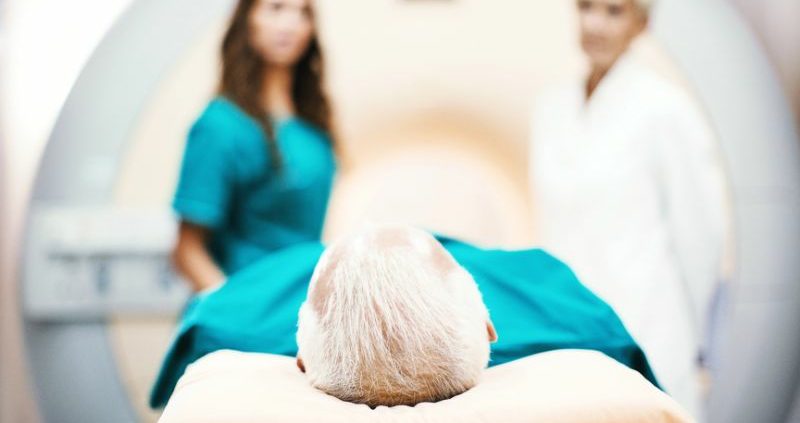MRI scans could be used to screen for prostate cancer
Prostate cancer is the most common cancer in men, and about one in eight men in the UK will get prostate cancer in their lifetime. Prostate cancer mainly affects men over 50, and your risk increases with age.
More than 52,000 men are diagnosed with prostate cancer every year on average. But, the good news is that prostate cancer is often highly curable with early diagnosis and treatment.
September marks Orchid Male Cancer Awareness Week 2023, which seeks to raise awareness of male cancer, including prostate cancer.
The prostate is a gland, the size and shape of a walnut, which sits underneath the bladder and surrounds the urethra. Its primary function is to help make sperm, which grows larger as you age. The most common prostate problems are an enlarged prostate and also prostate cancer, which develops when prostate cells grow uncontrolled.
Sometimes, prostate cancer grows too slowly to cause problems or limits how long you’ll live and doesn’t require treatment. But it can proliferate and spread.
Prostate cancer symptoms to watch out for
Early-stage prostate cancer doesn’t usually cause any symptoms. In fact, urinary symptoms such as problems passing urine isn’t usually caused by prostate cancer. This is more likely caused by benign prostatic hyperplasia (BPH).
If prostate cancer has spread, it can cause symptoms such as back or bone pain, fatigue, and weight loss for no reason.
Therefore, knowing your modifiable risks and undergoing regular testing is essential.
A new UK study has established that a ten-minute MRI scan could be used to screen men for prostate. The scans have proved more accurate at diagnosing cancer than blood tests, which look for high protein levels called PSA.
For the Reimagine study published in the British Medical Journal of Oncology, men aged 50 to 75 in London were invited for screening – both MRI and PSA tests – which were carried out at University College Hospital.
More than half the men whose cancer was picked up on MRI had low PSA test scores below which is considered normal, and so would have been falsely reassured they were free of disease.
Professor Caroline Moore, consultant urologist at UCLH and chief investigator of the study at University College London, said: “Our results give an early indication that MRI could offer a more reliable method of detecting potentially serious cancers early.”
Our comprehensive Well Man Medicals encompass all approved tests for potential male health conditions and we also can work with you to adopt healthy lifestyle changes to modify your risks of developing potential health concerns. We also can refer to London’s top urologists for access to an MRI scan.
Call +44 (0)20 4580 1152 to arrange an appointment with one of our team.










